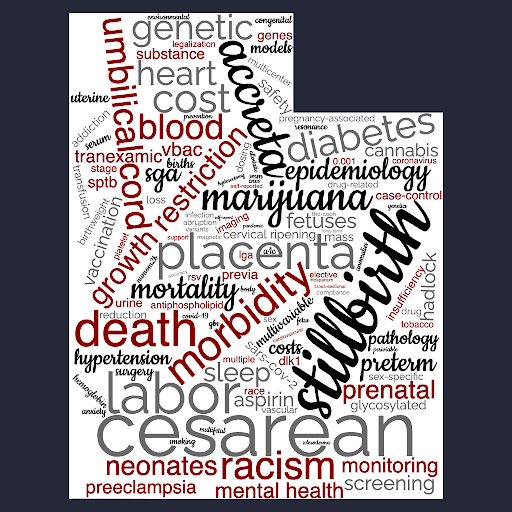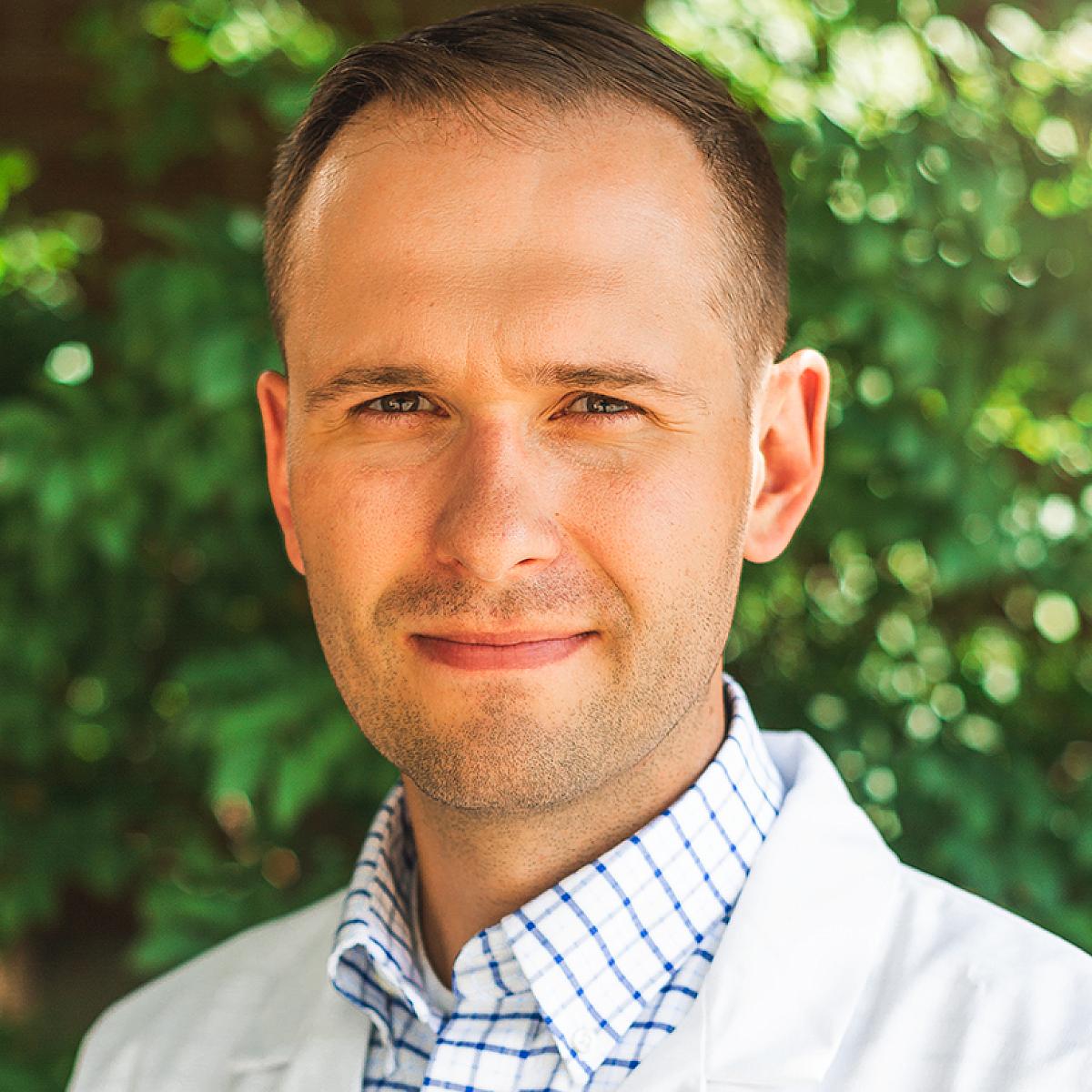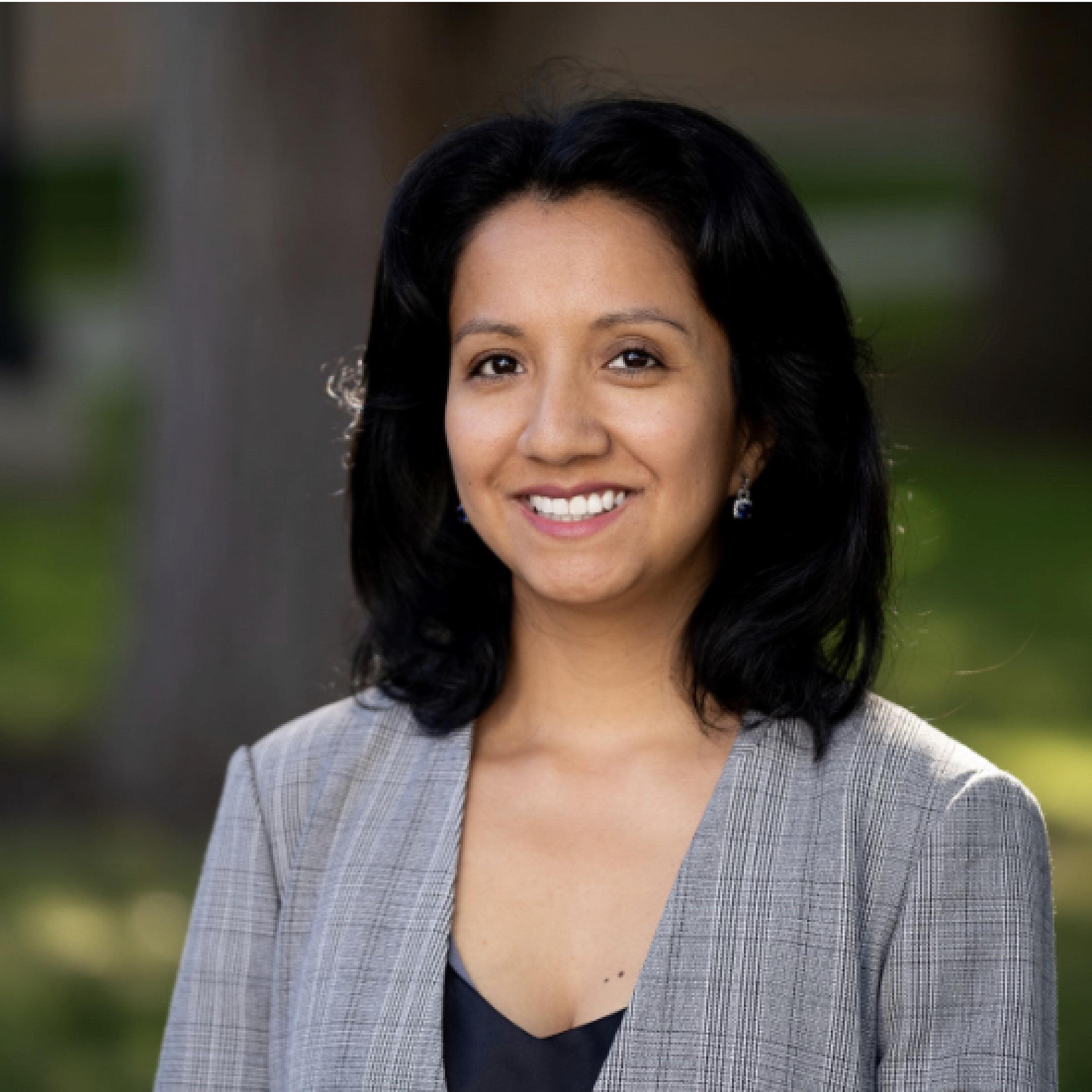
Research Opportunities
Overview
The University of Utah is one of the top 50 research institutions in the United States. The U of U Health has consistently been in the top tier of obstetrics and gynecology departments for NIH funding. Grant and contract activity within maternal-fetal medicine over the last decade includes clinical research in:
- preterm birth,
- recurrent pregnancy loss,
- stillbirth,
- antiphospholipid syndrome,
- substance use in pregnancy,
- placenta accreta,
- maternal congenital heart disease,
- preeclampsia,
- long-term cardiovascular health after pregnancy,
- and venous thromboembolism.
Our NICHD Maternal-Fetal Medicine Units Network Membership
The Division is now in its fifth consecutive five-year membership in the NICHD Maternal-Fetal Medicine Units Network (MFMU) and has also been a prominent participant in numerous other federally funded clinical trial networks and programs such as the NICHD Stillbirth Collaborative Research Network (SCRN) and the Nulliparous Pregnancy Outcomes Study: Monitoring Mothers-to-Be (nuMoM2b). The data and biological samples from these large research networks are available for fellowship research projects.
The Department also continues to focus its translational research on human genetics and immunology, working collaboratively with discovery scientists in these disciplines. Many current maternal-fetal medicine faculty have NIH-funded research. We have a successful track record of obtaining funding for fellows and junior faculty. The University of Utah is currently one of fifteen sites of the Women’s Reproductive Health Research (WRHR) Career Development Program, which is a training grant from the NIH to provide junior faculty with 75% protected time for research and mentorship as they pursue independent funding.
Faculty Research Areas
Faculty in the Division of Maternal-Fetal Medicine have active investigations, interest, and expertise in a wide range of areas.

Research Faculty Member Area of Investigation and Expertise
| Nathan Blue, MD MSCI | Fetal growth restriction, stillbirth, genomics, research reproducibility, vaccination, risk stratification, |
| Ann M. Bruno, MD | Venous thromboembolism, vaginal birth after cesarean, hypertensive disorders of pregnancy. |
| D. Ware Branch, MD | Antiphospholipid syndrome, recurrent pregnancy loss, placenta accreta spectrum. |
| Brett D. Einerson, MD MPH | Placenta accreta spectrum, obstetric hemorrhage, quality improvement, cost-effectiveness, randomized trials. |
| Heather D. Campbell, MD | Hypertensive disorders of pregnancy, thrombosis and hemostasis in pregnancy, placental abruption, education in OB/GYN |
| Michelle P. Debbink, MD PhD | Racial, ethnic, and geographic inequities in adverse pregnancy outcomes; severe maternal morbidity; community-engaged participatory research; Native Hawaiian and Pacific Islander maternal health; Native and Indigenous maternal and reproductive health |
| Torri D. Metz, MD MS | Marijuana use in pregnancy, maternal congenital heart disease, cesarean delivery and vaginal birth after cesarean, COVID-19 |
| Martha Monson, MD MSCI | Fetoscopic laser surgery, fetal anomalies, complicated twin gestation |
| Jessica Page, MD | Stillbirth, gestational diabetes |
| Bob Silver, MD | Recurrent pregnancy loss, stillbirth, immunologic diseases of pregnancy, placenta accreta spectrum |
| Marcela C. Smid, MD MS MA | Perinatal addiction, substance use disorders, maternal mortality, maternal mental health, hepatitis C |
| Lauren Theilen, MD MS | Hypertensive disorders of pregnancy, pregnancy as a window to future health, breastfeeding, delayed cord clamping |
| Tsegaselassie Workalemahu, PhD MS | Genetic contributors to stillbirth, recurrent pregnancy loss, and growth restriction; epidemiology; whole genome sequencing; placental epigenetics |
Research Excellence
In recent years, the Maternal-Fetal Medicine Division has been recognized for research excellence by Obstetrics & Gynecology (The Green Journal) through receipt of the Roy M. Pitkin Award in 2018, 2020, and 2022. The Pitkin award “was established in 1998 to honor departments of obstetrics and gynecology that promote and demonstrate excellence in research." Each of these awards arose from work completed by our fellows during their fellowship, and this recent success stands as a testament to the longstanding track record of exceptional mentorship and support our fellows receive from the department and division.
2018
Page JM, Thorsten V, Reddy UM, Dudley DJ, Hogue CJR, Saade GR, Pinar H, Parker CB, Conway D, Stoll BJ, Coustan D, Bukowski R, Varner MW, Goldenberg RL, Gibbins K, Silver RM. Potentially preventable stillbirth in a diverse U.S. cohort. Obstet Gynecol 2018;131:336–43.
2020
Einerson BD, Nelson RE, Sandoval G, Esplin MS, Branch DW, Metz TD, Silver RM, Grobman WA, Reddy UM, Varner M. Cost of elective labor induction compared with expectant management in nulliparous women. Obstet Gynecol 2020;136:19–25.
2022
Scaglione MA, Allshouse AA, Canfield DR, Mclaughlin HD, Bruno AM, Hammad IA, Branch DW, Maurer KA, Dood RL, Debbink MP, Silver RM, Einerson BD. Prophylactic ureteral stent placement and urinary injury during hysterectomy for placenta accreta spectrum. Obstet Gynecol 2022;140:806–11.
Recently Published Fellows Research
We are extremely proud of the quality of research our fellows produce. Each year our fellows present their research in oral presentations and poster presentations at national and international conferences, including SMFM, ACOG, SRI, and others.
Find a link to our recent fellow-led publications indexed in PubMed.
Mentorship
Each fellow is assigned 1-2 mentors when they start their fellowship, including a dedicated research mentor. Mentorship is reevaluated at least annually and fellows are encouraged to develop their own personalized mentorship team to optimize their developing research interests. Strong clinical and research mentorship is one of our program’s greatest strengths.
Research Support Services

Hi, I am Amanda Allshouse and I am a biostatistician. I would like to share a bit about my role, what I love about the work,the research environment and culture. My home is in the division of maternal-fetal medicine in the department of Ob/Gyn. I work with the residents, fellows, and faculty across all phases of the scientific process. My contributions to each collaboration can include early vetting of hypotheses for feasibility, study design, support in grant writing, data infrastructure support, analysis, creation of tables and figures to bring results to life, interpretation of results, and iterative abstract and manuscript drafting.
Specializing within MFM has allowed me to become more of a content expert for working with the nature of data and appropriate methods for this population, but with every research question there is always more to learn. I love the constant push to learn and grow and expand with different methods to meet new hypotheses.
I appreciate the strong support of clinical research across the department. Existing infrastructure advances research rooted in public health: social determinants of health, achieving health equity through reducing and eliminating health disparities, and improving patient-reported outcomes, through prospective studies, analyses of existing databases, and linage to state-wide population data. Decades of senior faculty’s dedication to active participation in research networks has yielded access to a large bank of biospecimens linked to well-characterized clinical populations.
The organizational culture within the department is key in its success. The attention to ensure each person’s contributions are valued and appreciated is fostered from the top down. Opportunities for mentoring, peer support, and constructive feedback are easily accessible and routine. Clear and regular communication create accessibility across the all faculty that make research meetings synergistic and productive.
If you are considering Utah, I am happy to talk or answer questions to help you in your decision making process.
In addition, the Department houses the Obstetrics and Gynecology Research Network (OGRN) which provides research infrastructure to support grant pre-award activities such as grant writing and budgeting, post-award activities such as managing the financial aspect of the grant, and a regulatory compliance manager to assist with IRB submissions and renewals. The Associate Director of Research, Kathy Harvey, works closely with the Vice-Chair for Research, Dr. Torri Metz, to lead OGRN. https://medicine.utah.edu/obgyn/research/obgyn-research-network/
Externally-Funded Research (NIH and CDC)
Several maternal-fetal medicine faculty have CDC or NIH-funded research. We have a successful track record of obtaining funding for fellows and junior faculty: Three junior faculty currently hold NIH K awards (training grants).
Current NIH and extramural awards include:
- Bruno (NIH K12 WRHR)
- Debbink (NIH RSDP PI)
- Theilen (NHLBI K23 PI, NICHD SPAN Co-I, and PTN CUDDLE Co-I)
- Einerson (NICHD K23 PI, BIOPASS Site PI, COMFORT Site PI)
- Smid (CDC MAT-LINK, NIDA R21 PI, STORC Site PI, NINR R01 Co-I) )
- Blue (Samsung Pilot PI, NICHD SPAN Co-I, NIH CMV NeoChip Co-I, Moderna Vaccine Site PI)
- Esplin (MFMU Co-I)
- Metz (MFMU PI, CDC ERASE, NIH OPRU Site PI, NIH R01 PI, CHAP Site PI)
- Silver (NuMOM2b-HHS PI, SPAN PI, MFMU Co-I, WRHR PI)
In 2019, the University of Utah Department of OB/GYN was awarded $6,174,311 in NIH funding; the Maternal-Fetal Medicine Division was responsible for $2,785,015.
We have also been a site in the Maternal Fetal Medicine Unit (MFMU) Network since 1996 (Dr. Metz, PI). Numerous fellow papers and presentations have resulted from secondary analysis of MFMU Network data.
Multi-Center Research
The MFM division participates in other NIH-funded multi-center research including:
- Stillbirth Collaborative Research Network,
- Genomics and Proteomics Network for Preterm Birth Research,
- NuMoM2b Network,
- NuMoM2b Heart Health
- EAGeR Trial,
- National Children’s Study,
- Pan American Society for Placenta Accreta Spectrum (PAS) Network,
- COMFORT Trial (Outpatient Cervical Ripening)
- Consortium on Safe Labor,
- and FASTER, among others.
Basic and clinical research projects under the supervision of Maternal-Fetal Medicine faculty have repeatedly resulted in Society for Maternal-Fetal Medicine (SMFM) oral and poster presentations by current and past fellows.
Masters of Science and Clinical Investigation / Summer Courses
Fellowship begins with a four-week summer research curriculum in epidemiology, data management, bioethics, biostatistics, and genetics. Our curriculum provides the necessary skills to begin your transition into an independent clinical investigator and gives you time to settle into your new home in Salt Lake City.
These summer credits can be applied to the Master of Science in Clinical Investigation (MSCI) or Master of Public Health (MPH) degrees. If you already have an advanced degree, we encourage and financially support a personalized curriculum that will help you to reach your academic goals
Unless you already have an advanced research degree, we strongly encourage you to complete the MSCI or MPH by the end of fellowship. Over the last 5 years, 86% of graduating fellows have completed an advanced research degree.
Additional Research Opportunities
Further support of fellow research includes:
- We are a member of the Maternal-Fetal Medicine Units (MFMU) Network and fellows have the opportunity to perform secondary analyses of network studies
- The Utah Population Database is a unique resource for population-based analyses and studies
- Fellows attend SMFM (all fellows have coverage to attend each year of fellowship) and/or SRI meetings each year and other meetings as appropriate
- Opportunity to attend the NICHD Young Investigators Conference on Maternal-Fetal-Neonatal-Reproductive Medicine
- Intermountain Healthcare is a leader in quality-improvement and maintains numerous databases (to which fellows have access) including fetal heart tracings, maternal variables, and neonatal outcomes
- Research nurses and administrative support staff to assist with IRB submissions, data collection, etc.
- Full-time Department of OBGYN Biostatistician (Amanda Allshouse)
- Collaboration with other investigators outside MFM and Ob/gyn and across the medical and university community
- Individualized plans to assist each fellow in achieving their research and career development goals (e.g. one of our recent fellows completed the SMFM Queenan Fellowship for Global Health) (see Career Development)



